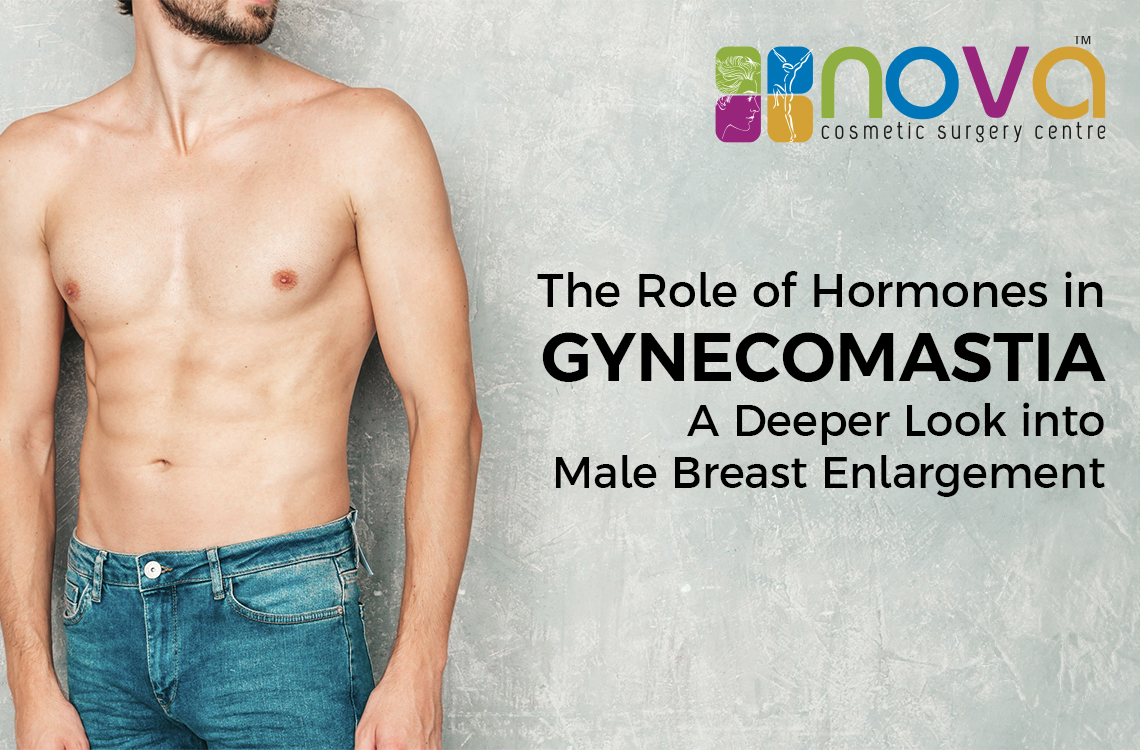

Posted Date : 26 Oct 2023
Gynecomastia is a common condition affecting men across the globe, characterized by the enlargement of breast tissue. While it's a topic not often discussed openly due to stigma and embarrassment, understanding the hormonal underpinnings of this condition is critical for those seeking answers and relief.
At the heart of gynecomastia lies a delicate hormonal balance between estrogen and testosterone. These hormones are present in all genders, but in different ratios. Estrogen promotes the growth of breast tissue, while testosterone counteracts these effects. When the balance tilts in favor of estrogen, men can develop more breast tissue than is typical.
Several life stages or health conditions can provoke an estrogen increase or a decrease in testosterone, leading to gynecomastia. Puberty is a prime time for hormonal tumult, often resulting in temporary breast enlargement in boys. On the other end of the age spectrum, middle-aged and older men may experience a natural decline in testosterone, again potentially tipping the scales toward estrogen.
Besides natural hormonal fluctuations, certain medical conditions like hyperthyroidism, tumors, kidney failure, or liver disease can cause gynecomastia. Furthermore, medications for conditions such as prostate issues, heart disease, and even some anti-anxiety drugs can alter hormone levels, underscoring the need for a thorough medical review if gynecomastia presents itself.
Diagnosing gynecomastia typically involves a medical history review, physical exams, and possibly blood tests to assess hormone levels. In some cases, imaging tests like ultrasounds or mammograms are used to study the breast tissue in detail.
Treatment options vary based on the underlying cause. If a particular medication is the culprit, switching to an alternative may resolve the issue. For hormone-related conditions, endocrinologists might prescribe medication to balance hormone levels. In persistent cases, surgery may be recommended to remove excess breast tissue, providing a permanent solution.
Understanding the hormonal complexities behind gynecomastia is the first step toward effective management. Anyone experiencing this condition should seek professional medical advice to explore their options. With the right approach, gynecomastia can be managed, treated, and overcome, paving the way for improved physical and emotional well-being.
If you still have questions about your Gynecomastia, please feel free to talk to the Doctor or book an appointment.

© 2017 nova cosmetic surgery centre. All rights reserved.